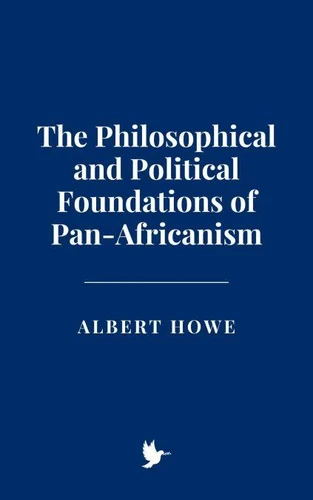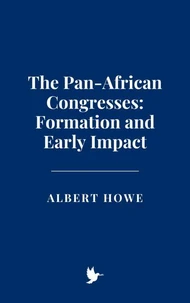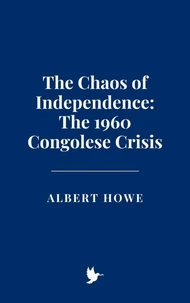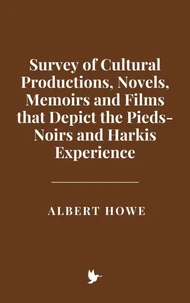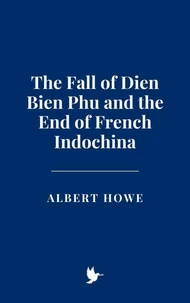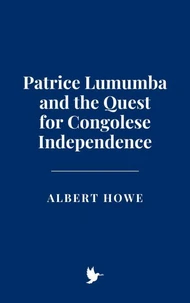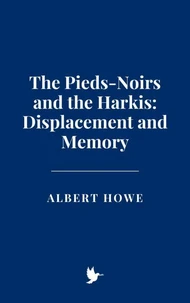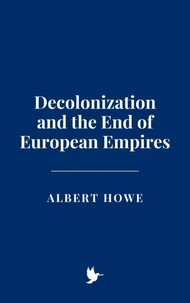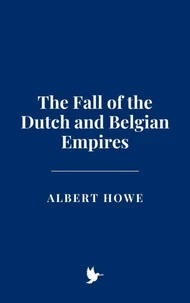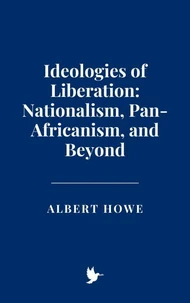The Philosophical and Political Foundations of Pan - Africanism
Par :Formats :
Disponible dans votre compte client Decitre ou Furet du Nord dès validation de votre commande. Le format ePub est :
- Compatible avec une lecture sur My Vivlio (smartphone, tablette, ordinateur)
- Compatible avec une lecture sur liseuses Vivlio
- Pour les liseuses autres que Vivlio, vous devez utiliser le logiciel Adobe Digital Edition. Non compatible avec la lecture sur les liseuses Kindle, Remarkable et Sony
 , qui est-ce ?
, qui est-ce ?Notre partenaire de plateforme de lecture numérique où vous retrouverez l'ensemble de vos ebooks gratuitement
Pour en savoir plus sur nos ebooks, consultez notre aide en ligne ici
- FormatePub
- ISBN8231791668
- EAN9798231791668
- Date de parution01/08/2025
- Protection num.pas de protection
- Infos supplémentairesepub
- ÉditeurWalzone Press
Résumé
The Philosophical and Political Foundations of Pan-Africanism is a definitive, deeply insightful journey into one of the most powerful and enduring movements in global history. Tracing its origins from the late 19th century through the transformative waves of the 20th and into today's dynamic era, this book unveils the intellectual rigor, passionate activism, and complex debates that shaped Pan-Africanism's quest for unity, liberation, and justice among African-descended peoples worldwide.
Through vivid portraits of visionary leaders such as W. E. B. Du Bois and Marcus Garvey, and through the landmark Pan-African Congresses that galvanized a global movement, the narrative reveals how ideas of identity, solidarity, and resistance evolved against the backdrop of colonialism, racism, and Cold War geopolitics. The book illuminates the intersections of Pan-Africanism with socialism, gender, cultural renaissance, and the ongoing struggles against neocolonialism and systemic injustice.
Combining rich historical detail with profound philosophical inquiry, this work offers readers a fresh understanding of Pan-Africanism as both a historical phenomenon and a vibrant, living force. It showcases how Pan-African ideals continue to inspire contemporary movements for racial justice, economic empowerment, and global solidarity in an increasingly interconnected world. Essential reading for scholars, activists, and anyone interested in the powerful currents shaping African and diasporic identities, this book not only chronicles a movement but challenges us to imagine a future where unity and liberation transcend borders and transform societies.
Through vivid portraits of visionary leaders such as W. E. B. Du Bois and Marcus Garvey, and through the landmark Pan-African Congresses that galvanized a global movement, the narrative reveals how ideas of identity, solidarity, and resistance evolved against the backdrop of colonialism, racism, and Cold War geopolitics. The book illuminates the intersections of Pan-Africanism with socialism, gender, cultural renaissance, and the ongoing struggles against neocolonialism and systemic injustice.
Combining rich historical detail with profound philosophical inquiry, this work offers readers a fresh understanding of Pan-Africanism as both a historical phenomenon and a vibrant, living force. It showcases how Pan-African ideals continue to inspire contemporary movements for racial justice, economic empowerment, and global solidarity in an increasingly interconnected world. Essential reading for scholars, activists, and anyone interested in the powerful currents shaping African and diasporic identities, this book not only chronicles a movement but challenges us to imagine a future where unity and liberation transcend borders and transform societies.
The Philosophical and Political Foundations of Pan-Africanism is a definitive, deeply insightful journey into one of the most powerful and enduring movements in global history. Tracing its origins from the late 19th century through the transformative waves of the 20th and into today's dynamic era, this book unveils the intellectual rigor, passionate activism, and complex debates that shaped Pan-Africanism's quest for unity, liberation, and justice among African-descended peoples worldwide.
Through vivid portraits of visionary leaders such as W. E. B. Du Bois and Marcus Garvey, and through the landmark Pan-African Congresses that galvanized a global movement, the narrative reveals how ideas of identity, solidarity, and resistance evolved against the backdrop of colonialism, racism, and Cold War geopolitics. The book illuminates the intersections of Pan-Africanism with socialism, gender, cultural renaissance, and the ongoing struggles against neocolonialism and systemic injustice.
Combining rich historical detail with profound philosophical inquiry, this work offers readers a fresh understanding of Pan-Africanism as both a historical phenomenon and a vibrant, living force. It showcases how Pan-African ideals continue to inspire contemporary movements for racial justice, economic empowerment, and global solidarity in an increasingly interconnected world. Essential reading for scholars, activists, and anyone interested in the powerful currents shaping African and diasporic identities, this book not only chronicles a movement but challenges us to imagine a future where unity and liberation transcend borders and transform societies.
Through vivid portraits of visionary leaders such as W. E. B. Du Bois and Marcus Garvey, and through the landmark Pan-African Congresses that galvanized a global movement, the narrative reveals how ideas of identity, solidarity, and resistance evolved against the backdrop of colonialism, racism, and Cold War geopolitics. The book illuminates the intersections of Pan-Africanism with socialism, gender, cultural renaissance, and the ongoing struggles against neocolonialism and systemic injustice.
Combining rich historical detail with profound philosophical inquiry, this work offers readers a fresh understanding of Pan-Africanism as both a historical phenomenon and a vibrant, living force. It showcases how Pan-African ideals continue to inspire contemporary movements for racial justice, economic empowerment, and global solidarity in an increasingly interconnected world. Essential reading for scholars, activists, and anyone interested in the powerful currents shaping African and diasporic identities, this book not only chronicles a movement but challenges us to imagine a future where unity and liberation transcend borders and transform societies.

